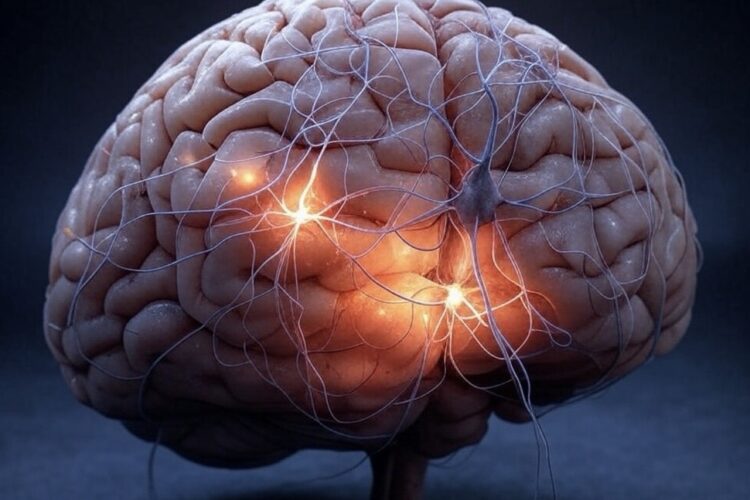Sleep deprivation isn’t just about feeling groggy—it’s a silent wrecking ball to your brain. Research shows that skipping sleep doesn’t just leave you tired; it triggers a cascade of effects that can lead to lasting brain damage. From frayed neurons to memory lapses, the stakes are high. Let’s break down how chronic sleep loss dismantles your mind, piece by piece, and why it’s a health risk you can’t ignore.
The Brain Under Siege: Neurons and Inflammation
Your brain relies on sleep for restoration. During those precious hours, neurons—the brain’s workhorses—repair and recharge. Skimp on sleep, and they don’t get that chance. Studies reveal that sleep deprivation ramps up inflammation in the brain, a process where immune cells overreact, damaging healthy tissue. This isn’t a one-night problem—chronic sleep loss piles up this stress, leaving neurons vulnerable to long-term harm. Think of it as a city with no maintenance crew: cracks form, then widen.
Cognitive Decline and the Prefrontal Cortex
Ever notice how hard it is to focus after a bad night? That’s your prefrontal cortex—the brain’s command center for attention and decision-making—taking a hit. Sleep deprivation starves it of energy, leading to brain fog, that fuzzy mental state where even simple tasks feel Herculean. Research ties this to cognitive decline, where prolonged sleep debt erodes your ability to think clearly or solve problems. It’s not just a bad day; it’s your brain signaling distress.
Memory Slips and Sleep Cycles
Memory takes a beating too. Sleep cycles, especially REM and deep sleep, are when your brain sorts and stores what you’ve learned. Miss those phases, and you’re not consolidating anything—yesterday’s lessons slip away. Scientists have tracked this in labs: sleep-deprived subjects flunk memory tests compared to rested peers. Worse, chronic sleep loss might even shrink the hippocampus, the brain’s memory hub, setting the stage for bigger deficits down the line.
Stress Hormones and Mental Health
Then there’s the hormonal chaos. Sleep deprivation spikes stress hormones like cortisol, which flood your system and keep your brain in fight-or-flight mode. This isn’t just jittery nerves—it’s a mental health time bomb. Studies link sleep loss to heightened anxiety and depression, as an overtaxed brain struggles to regulate emotions. Fatigue sets in, amplifying the strain, and suddenly you’re not just tired—you’re unraveling.
Neurodegeneration and Amyloid Plaques
The long game is even scarier: neurodegeneration. Sleep acts like a janitor, clearing out toxic waste like amyloid plaques—protein clumps tied to Alzheimer’s disease. Skip sleep, and these plaques pile up, especially in the brain’s deeper layers. Research from 2023 showed that even a single night of sleep deprivation boosts amyloid levels in healthy adults. Stack years of sleep debt, and you’re rolling the dice on irreversible brain damage—a chilling health risk tied to chronic sleep loss.
Neuroplasticity Under Threat
Your brain’s adaptability, or neuroplasticity, also suffers. This is how you learn, adapt, and grow—new neural connections form during sleep. Starve it of rest, and those connections weaken. A 2024 study found that sleep-deprived rats lost synaptic strength in key brain regions, hinting at why you might feel “dumber” after pulling an all-nighter. Over time, this chips away at your brain’s ability to bounce back from stress or injury.
The Chronic Sleep Loss Spiral
It’s not just one sleepless night—it’s the pattern. Chronic sleep loss compounds these effects, turning temporary glitches into permanent scars. Sleep debt doesn’t forgive; it accumulates. Miss a few hours here and there, and your attention wanes. Push it for weeks, and inflammation surges. Years? You’re looking at a brain primed for serious trouble—memory fading, mental health fraying, and neurodegeneration creeping closer.
Why It Matters: Health Risks Beyond the Brain
The brain doesn’t suffer alone. Sleep deprivation’s fallout—spiking stress hormones, chronic fatigue, and inflammation—ripples into your body. Heart disease, diabetes, and obesity often tag along, but the brain’s damage is the linchpin. A 2025 meta-analysis pegged sleep loss as a top modifiable risk factor for cognitive decline, right up there with smoking. Ignore it, and you’re not just tired—you’re on a collision course with a diminished life.
The Fix: Restoration Through Sleep
The good news? Your brain craves restoration, and sleep delivers. Hit those seven to nine hours, and you’re giving your neurons a fighting chance, flushing amyloid plaques, and dialing down inflammation. Protect your sleep cycles, and your prefrontal cortex sharpens, memory locks in, and neuroplasticity thrives. It’s not magic—it’s biology. But skimp on it, and the damage is real, measurable, and—over time—irreversible.






